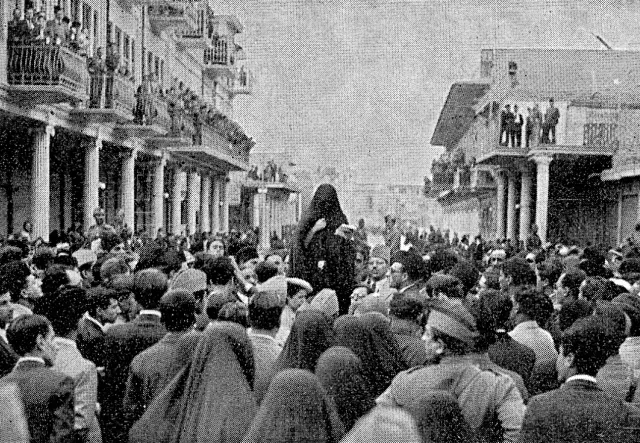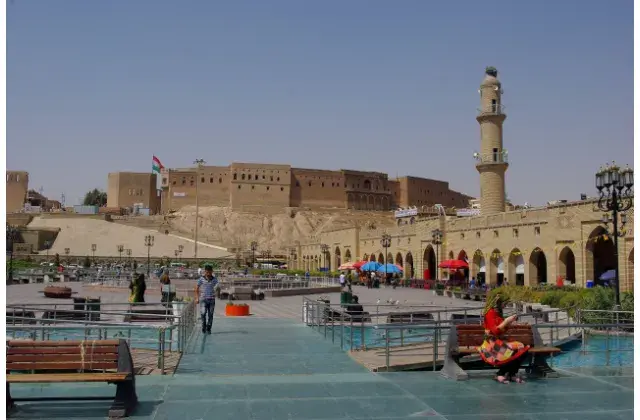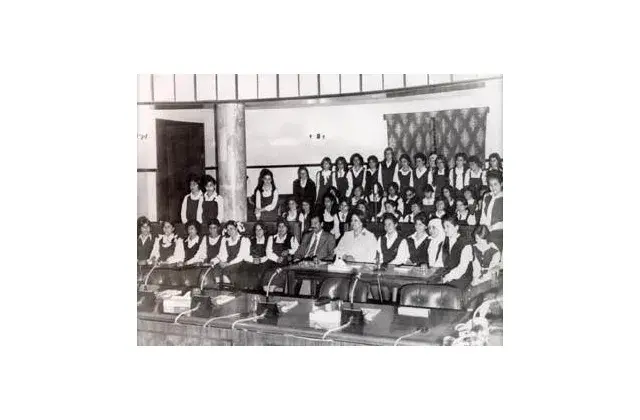الانقلابات الأولى (١٩٣٢ - ١٩٤٥)

قبل وفاته بفترة وجيزة في سبتمبر 1933، فكر الملك فيصل الأول في المجتمع المنقسم الذي شكل الأساس الهش للدولة التي ساعد في تأسيسها. مع وفاة الملك فيصل الأول، فقدت الدولة الحديثة بتنوعها العرقي والديني وسيطها الذي كانت في أمس الحاجة إليه. أصبح ابنه غازي، البالغ من العمر 21 عاما، ثاني ملوك العراق. لكن الملك الجديد لم يكن مهتمًا بالسياسة كثيرًا، لكنه كان إجمالا يتعاطف مع القومية العربية. و كان نتاجًا لنظام أدى إلى تفاقم استياء جزء من الدولة التي يهيمن عليها جزء آخر خلال السنوات القليلة التالية. كان غازي أكثر تمرداً و أقل دبلوماسية من والده، حيث دعا إلى إعادة التوحيد تحت دولة عربية واحدة وتعهد بتحرير الكويت من الحماية البريطانية و توحيدها مع العراق. علاوة على ذلك، فقد أسس محطته الإذاعية الخاصة في القصر الملكي "الزهور" لبث ميوله القومية العربية وتصريحاته عن الكويت وموقفه المناهض للبريطانيين. و توفي غازي في حادث سيارة غامض في أبريل 1939 ليخلفه ابنه فيصل الثاني، الذي كان ٱنذاك يبلغ من العمر حوالي أربع سنوات. تم إنشاء وصاية تحت عمه الأمير عبد الإله، الذي لم يكن مهتمًا بالسياسة أيضًا وترك معظم المهام التشغيلية لنوري السعيد الموالي للبريطانيين، والذي اشتهر فيما بعد بأسلوبه القيادي القمعي.
و في عام 1934، أقر البرلمان مشروع قانون الدفاع الوطني الذي أنشأ آلية التجنيد الإجباري. بعد اضطرابات القبائل في جنوب العراق عام 1935، عين الوصي ياسين الهاشمي رئيسًا للوزراء. كان ياسين الهاشمي قائدا عسكريا في الجيش العثماني، ومن أبرز من عاصر الملك فيصل الأول بعد تأسيس المملكة العراقية، وأسس في عهد الملك غازي حزب الإخاء الوطني الذي أوصله لرئاسة الحكومة. وقام ياسين الهاشمي بقمع الثورات التي اندلعت بما في ذلك ثورة الأكراد في الشمال، الذين انشقوا بسبب بسبب الخوف من التجنيد الإجباري. ومن أجل وضع حد للاستبداد والفساد المزعوم لنظام ياسين الهاشمي، شهد العراق أول انقلاب له، والذي كان في نفس الوقت الأول في العالم العربي. وبفضل حركتين معارضتين مختلفتين على نطاق واسع (مجموعة الأهالي، التي تدعو إلى الاشتراكية والديمقراطية ومجموعة ضباط الجيش، التي تؤكد على القومية)، فقد أدخل فترة خمس سنوات من التدخل العسكري في الشؤون السياسية والتي بلغت ذروتها في ثورة رشيد عالي الكيلاني في عام 1941.
وقد أدى التدخل العسكري في عهد النظام الهاشمي في نهاية المطاف إلى ثورة رشيد عالي الكيلاني في عام 1941 وهو ثاني انقلاب في تاريخ العراق الحديث. وقد أدى الخوف الوشيك من فقدان النفوذ السياسي في العراق، من بين أسباب أخرى، إلى قيام الجيش البريطاني باحتلال العراق مرة أخرى وإعادة تشكيل الحكومة المؤيدة لبريطانيا والتي تشكلت حديثا برئاسة نوري السعيد، وإعلان الأحكام العرفية.
هذا المحتوى مرخص بموجب رخصة المشاع الإبداعي CC BY-NC 4.0.






